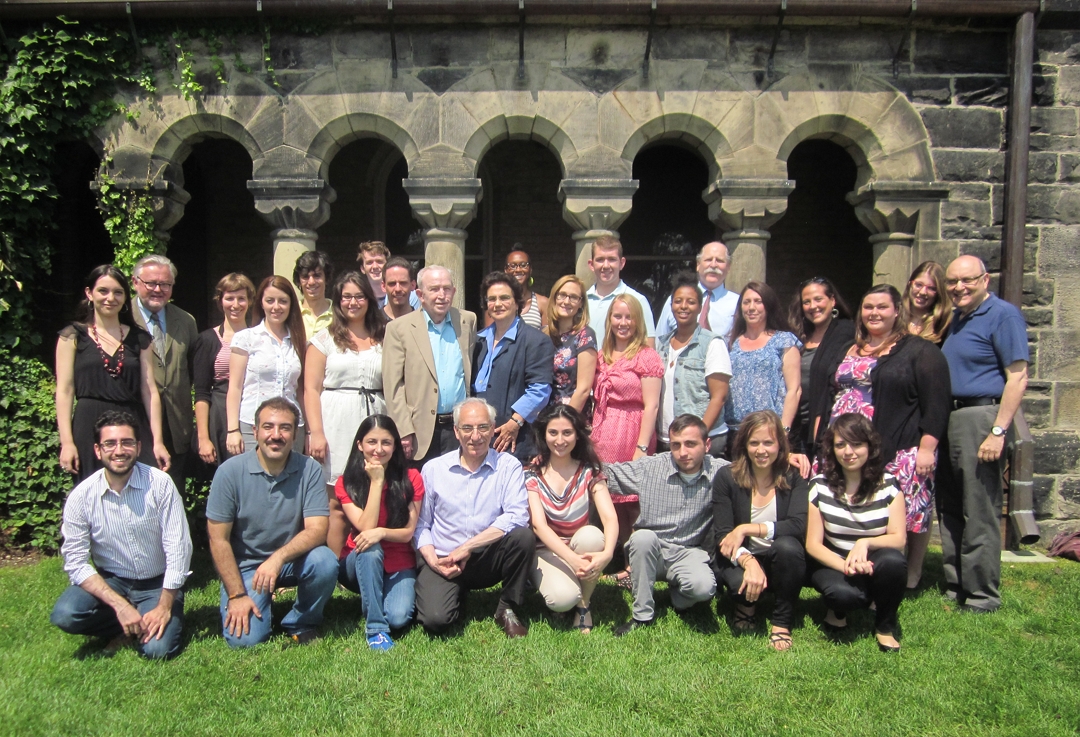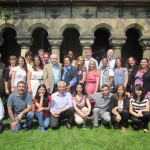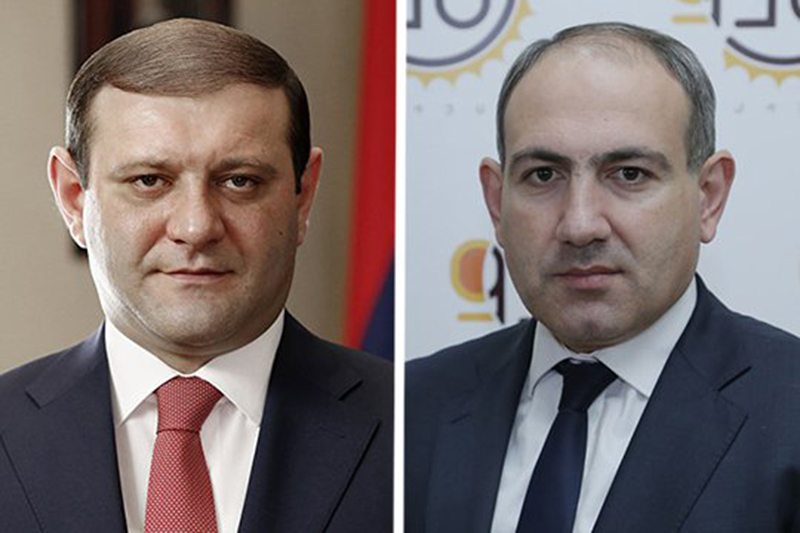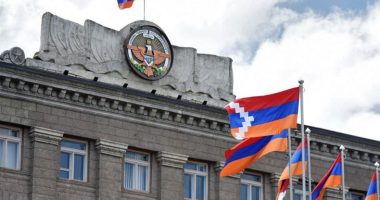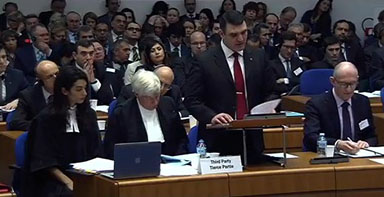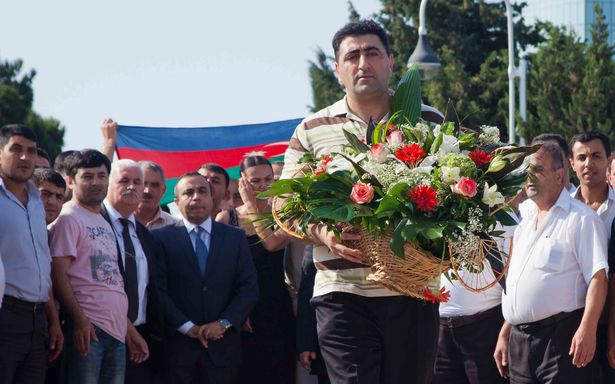TORONTO — The International Institute for Genocide and Human Rights Studies (A Division of the Zoryan Institute) concluded its 11th successful year of growth in the Genocide and Human Rights University Program (GHRUP). To date, some 300 students from 22 countries have participated in the renowned program, which is run in partnership with the University of Toronto. Twenty-two students from Armenia, Belgium, Brazil, Canada, Germany, Turkey, and the United States participated in the 65-hour seminar, which ran from August 6 to 17, 2012. They were taught by eleven leading scholars from the fields of International Law, Political Science, History, Sociology and Psychology through a uniquely interdisciplinary and comparative approach. This year’s students came from such diverse fields as Criminology, Development Studies, Diaspora Studies, International Law, Literature, Social Work, Theatre, and, of course, Genocide Studies.
Prof. Joyce Apsel, the program’s new Course Director, observed “The GHRUP students formed a learning community both within and outside the classroom setting. They learned both from the speakers and from one another, and were able to weave together difficult, important themes about studying genocide and other atrocities. The classroom was a site for moving beyond static frameworks and hierarchies and challenging each other to understand the complicated dynamics of human destructiveness in history. The diverse intellectual interests, training and backgrounds of the students and their commitment to the study of genocide and human rights issues resulted in my first year as GHRUP Course Director being an extraordinarily meaningful one.”
The GHRUP was established in 2001—the first course was offered in 2002—with a mission to help develop the next generation of genocide scholars. A noteworthy achievement in this regard was the participation of one of the program’s own graduates as an instructor. Maja Catic, Assistant Professor, Department of Defence Studies, Canadian Forces College, reintroduced the genocide in the Former Yugoslavia to the curriculum, which hadn’t been taught for several years.
Another noteworthy achievement this year was a new unit titled, “The Psychological Trauma of Genocide,” taught by Shaké Toukmanian, Professor Emerita and Senior Scholar, Dept. of Psychology, York University, and a founding member of the GHRUP Program Development Committee. She noted that while studying genocide through a historical or political lens is important, it does not allow for a holistic understanding of the crime. In her presentation, she sought to focus on the human dimension of genocide, the experience of psychological trauma of the survivors and their descendants, with particular emphasis on women and children of the Armenian Genocide, and drawing comparisons with interviews with female survivors of the Bosnian Genocide, who had borne children conceived through rape.
Israel Charny, Executive Director, Institute on the Holocaust and Genocide, Jerusalem, and Editor-in-Chief of the Encyclopedia of Genocide, joined the class over webcam from Israel. As a practicing psychologist and one of the world’s foremost experts on the subject of genocide denial, he was able to draw on his decades of personal experience confronting denial to give students an insight into its theoretical basis, the motivations of deniers, and the controversy over criminalizing denial versus freedom of expression.
Upon completing the program, one student commented, “All of the instructors were incredibly knowledgeable, prepared, empathetic and passionate about the field. They conveyed passion and inspired a true commitment from all of us.” Another wrote, “I simply loved the course. Trying to learn from prominent scholars and to understand the debates surrounding the field was enlightening. Getting to know, spend time, respect and make friendships among like-minded human beings who are truly committed and willing to learn and share experiences was fantastic.” A third remarked, “Genocide is not taught like this anywhere, it is a must to keep this going.”
“It has been a challenge to keep this program going for so many years, but a very satisfying one,” commented Greg Sarkissian, President of the IIGHRS. “The challenges are many—organizational, logistical, pedagogical, and, of course, financial,” he continued. “To bring in so many talented instructors—eleven this year— and dedicated students from far and wide is a very difficult undertaking, costing to date some $1.1 million, or an average of $100,000 per year. But when you see how the faculty present their subjects and how the students respond and are engaged, you know that you have made a good investment helping to develop the next generation of genocide scholars, raising awareness of the crime of genocide, and, hopefully, in the future of genocide prevention,” he concluded.
For more information, visit www.genocidestudies.org, write to [email protected], or call 416-250-9807.

